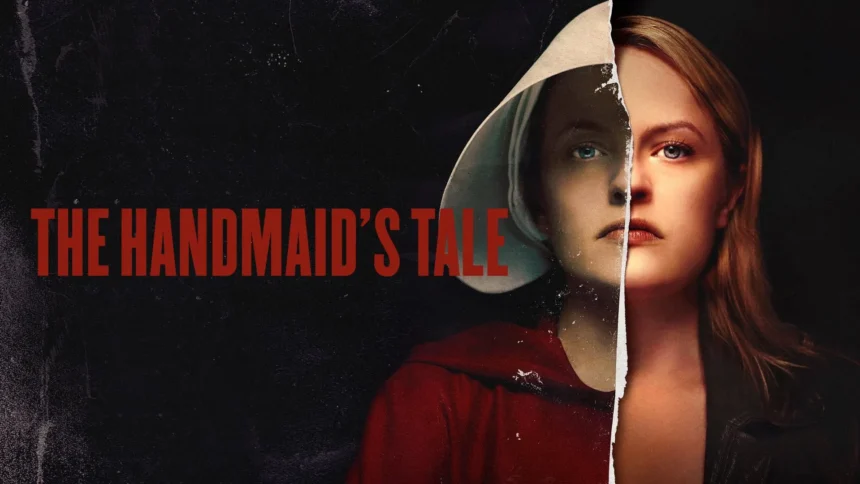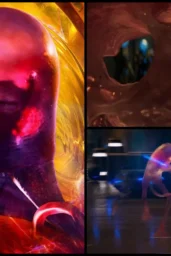There’s a sound—a soft, almost forgettable click. The kind of sound you might ignore the first time, maybe even the second. But once you’ve seen the end of The Handmaid’s Tale, once you’ve watched June Osborne outlive the regime that tried to erase her, that click echoes like a gunshot.
It’s the sound of her tape recorder.
And it’s there—in Episode One. Right before Elisabeth Moss utters those iconic words: “A chair. A table. A lamp.” It’s not just scenery. It’s not just mood. It’s a breadcrumb. A signal. That the voice we’re hearing? It’s future June. The one who made it out. The one who’s writing it all down.
Which means we weren’t just watching her story—we were reading it. All along.
A Voice They Tried to Silence
By now, we know the arc: June, once a journalist, becomes Offred, Gilead’s property. But even stripped of her name, her pen, her voice—she never stops telling her story. She narrates with clarity, bitterness, and a strange, unkillable hope. It’s easy to assume that narration is internal. But what if it’s not?
Cut to the final episode, Season 6, Episode 10, “The Handmaid’s Tale.” Gilead has collapsed in Boston. June isn’t exactly “free”—but she’s no longer captive either. There’s still a war to fight, a daughter to rescue. But now she has a weapon she didn’t before: her voice, publicly and loudly wielded.
Her mother, Holly (Cherry Jones), once dismissive of her writing, urges her to tell her story. To write it. And so June returns to the place where it began—the Waterford house. Now a ruin. Symbolic? Of course. It’s where she was once silenced. Now it’s her studio.
She sits. She clicks the recorder. And begins again:
“A chair. A table. A lamp…”
Same words. Same window. Same voice. But everything’s different.
The Circle Closes
That opening scene? It wasn’t just poetic—it was structural. The series begins and ends in the same physical space, but the power has shifted. She was trapped in that window frame. Now, she frames her own story.
It’s not just clever symmetry—it’s vindication. June’s body may have been captive, but her words always escaped.
Remember how she described the previous handmaid’s suicide? “A twisted sheet and a chandelier.” Gilead feared those escapes, the quiet rebellions no wall could contain. But the deepest escape? Was June’s. She kept thinking. Kept narrating. Kept documenting.
And now, she’s publishing.
Offred. June. Author.
When June smiles—wickedly—after saying “My name is Offred,” it lands like a punch. She’s quoting herself, yes. But she’s also reclaiming the name they gave her. It’s not submission. It’s mockery. And then it happens: the turn. “But now,” she implies, “it’s June.”
This isn’t just a show about escape. It’s about authorship. Who gets to tell the story? Who gets the last word? Gilead tried to erase her. But she wrote herself back in. Literally.
The whole series, it turns out, is her memoir.
The Final Escape Was Always a Book
There’s something haunting about that click. In 2017, we didn’t know what it meant. By 2025, it’s loaded. It means: she survived. It means: she’s speaking. It means: the entire show was filtered through her voice, her pen, her version. Not Gilead’s. Not the Commanders’. Hers.
And that’s why it mattered. Not just the violence, or the drama, or even the resistance—but the telling. The defiance in documentation. A woman, forbidden to read or write, builds her weapon out of words.
Maybe that’s why the final episode doesn’t feel triumphant in a Hollywood sense. It’s quieter. More reflective. Because this wasn’t about a revolution with fireworks—it was about memory, testimony, history.
What They Didn’t See Coming
We were looking for an escape plan with guns and tunnels. But the real exit? Was a click and a sentence.
Gilead didn’t fear running. They feared writing.
And June—finally, fully, ferociously—wrote.










